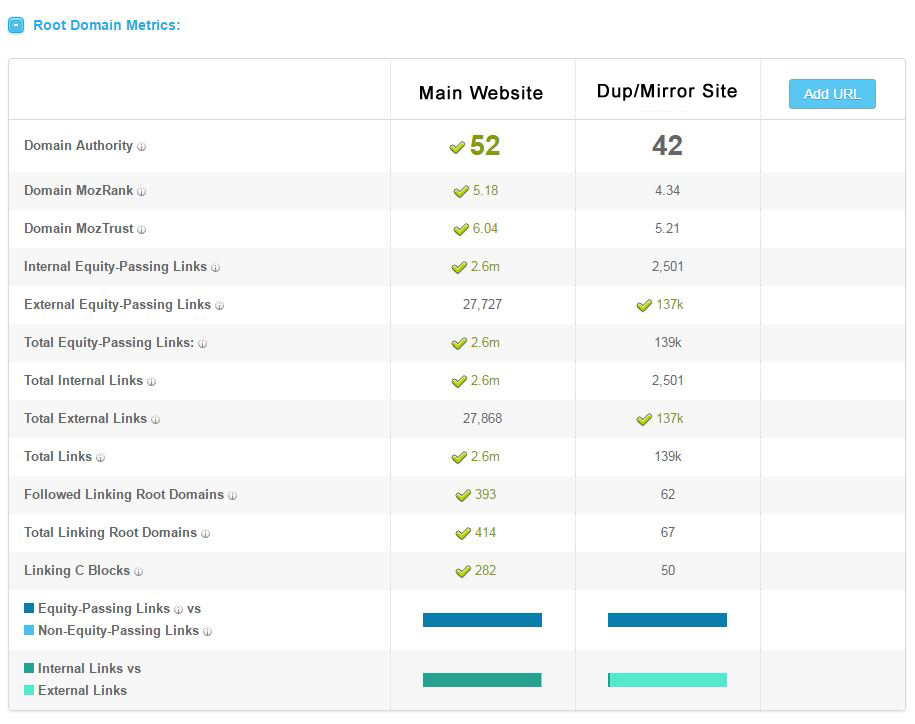During SEO audit for a client I noticed that they had over a dozen duplicate websites that are carbon copies of the main website. This was done via CMS platform and DNS. One of the mirror sites has about 400 indexed pages and has Moz DA of 42 and 137k External Equity-Passing Links (all pointing to the main website). Full metrics comparison is below:
I originally planned on doing rel="canonical" on the mirror site but the CMS vendor never even heard of it and is refusing to implement it in the header. My only other option is doing one to one 301 redirects.
Since the mirror site ranks well, even competes with main domain for some positions on the 1st page of SERP, what will be the impact after the redirects? Is doing 301's still the best option?


rel="canonical"doesn't need to be in the HTML, it can be implemented as an HTTP response header (although if the redirects - HTTP headers - are all managed by the CMS, then that would indeed be tricky).